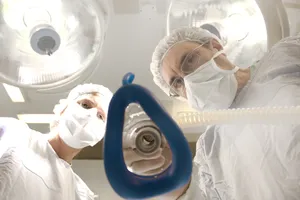
The study analyzed the health of over 2,600 children in Australia. The results revealed that children who had been exposed to anesthesia at a young age (3 or earlier) were more than twice as likely to have developmental delays with listening and speaking.
Assistant professor of pediatric anesthesiology at Columbia University Medical Center and lead author of the study, Dr. Caleb Ing, says that, while there’s a definite connection between the two, the team cannot confirm that anesthesia is the cause for the developmental issues.
“We can’t determine if the cause is due to anesthesia, surgical stimulus, or the medical condition. It could be another factor entirely. We just know there’s a difference,” he notes.
The test also analyzed children’s behavior and motor function but found no correlation between these skills and exposure to anesthesia.
Furthermore, the team also compared children who had anesthesia only once versus 52 children in the group who had it several times. While researchers did notice a difference, it could not be statistically proven with so few number of cases.
“We did see a difference in children with single and multiple exposure, but we couldn’t statistically prove a difference, because we need more patients that had multiple exposures than were available in this study,” said Ing.
Dr. David Warner, professor of anesthesiology at Mayo Clinic, stresses the importance of weighing the benefits and risks before every surgery.
“Anytime you decide to do a procedure, you need to understand what the real benefits are,” he explains. “Parents need to ask, ‘Do we really need to do this? How is this going to benefit my child?’ In the vast majority (of cases), in kids this age, the benefits are real. But the risk is potential and not definite.”
He added, “It’s been established as a risk factor, and needs to be part of the conversation as parents talk to their doctors.”
The study is being published in the September issue of Pediatrics.
Source(s): CNN, Chicago Tribune



